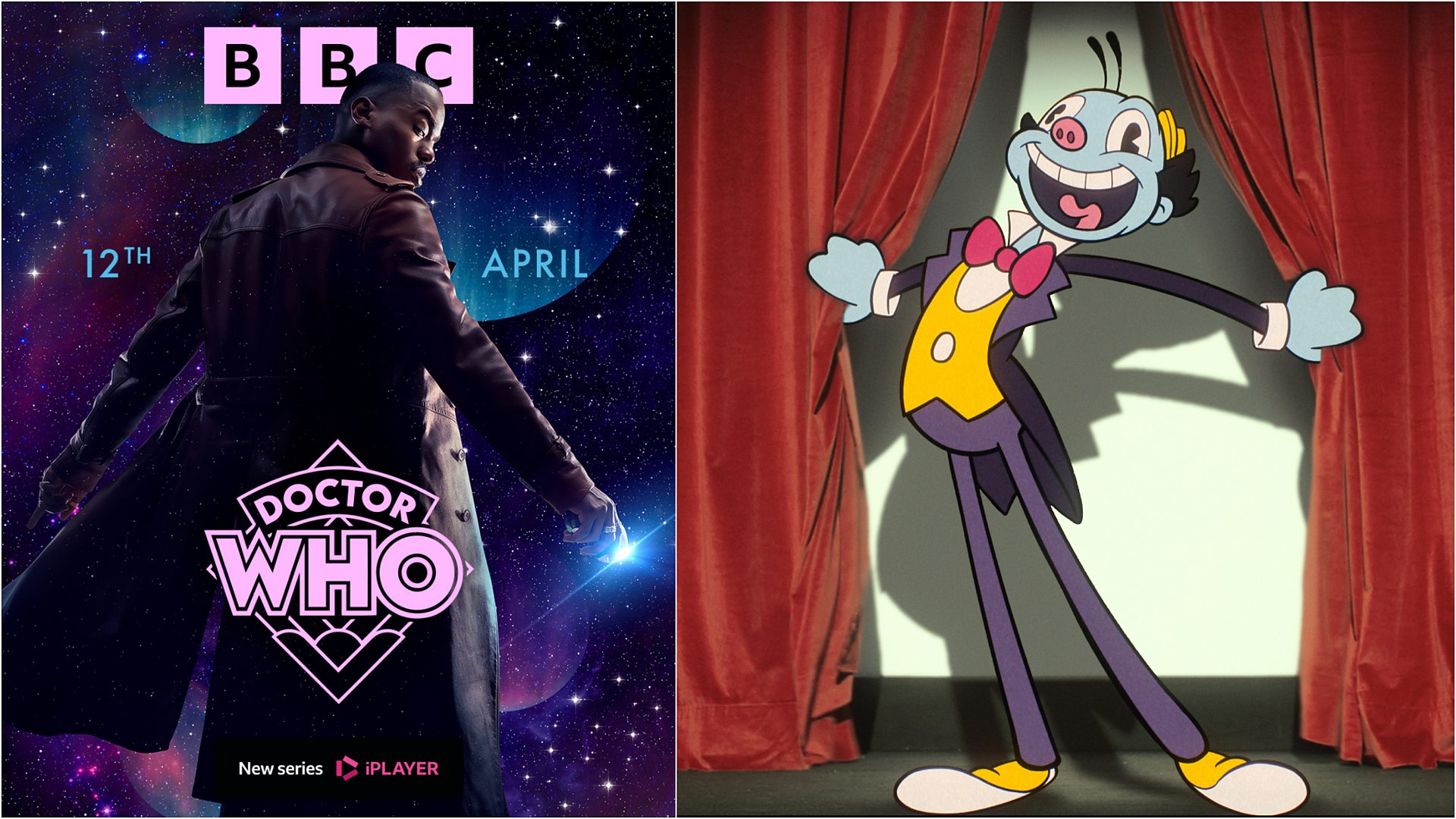I wanted to. I really did.
Let’s be clear: I wanted to love it. When Russell T Davies returned to Doctor Who, promising a bold new era with Disney’s backing and the electrifying Ncuti Gatwa at the helm, hope soared like a Dalek fleet over London. Yet, as Series 15 flickered to its confusing, backward-glancing close last month, all I felt was the hollow ache of squandered potential. This wasn’t just a stumble; it felt like the TARDIS, grand and timeless, grinding painfully into neutral.
The Promise vs. The Plod: A Dizzying Drop from Orbit
Remember the buzz? Gatwa’s Fifteenth Doctor burst onto our screens with infectious, chaotic joy at Christmas 2023. His energy was a supernova – all grin, swagger, and a wardrobe screaming “I am alive!” Fast forward to April 2025 and Series 15 opener “The Robot Revolution” landed with a metallic thud, not a revolutionary bang. The concept – AI-gone-rogue and companion Belinda Chandra’s (Varada Sethu) introduction – held intrigue. Sethu brought a grounded skepticism, a vital counterpoint to Fifteen’s flamboyance. Yet, the execution felt startlingly flat, tonally adrift between CBBC silliness and half-baked dystopia . This wasn’t the confident stride of a show revitalized; it felt like a show searching desperately for its audience, throwing concepts at the wall with little cohesion.
The following episodes, “Lux” and especially the much-hyped “Space Babies” retread (a low even Gatwa’s charm couldn’t elevate), cemented a worrying trend. Villains lacked menace, reduced to pantomime threats (“a bogeyman made of snot!” as one critic witheringly noted) . Plots meandered, relying on spectacle over substance, leaving the Doctor often passive or outwitted until a last-minute deus ex machina sonic flourish . The initial promise of Gatwa’s emotional openness, so refreshing initially, began curdling into repetitive beats – tears flowing so frequently they lost their narrative weight, leaning towards unintended parody . Where was the gravitas of a millennia-old Time Lord?
Glimmers in the Vortex: When the Magic Almost Ignited
To dismiss the entire series as awful would be disingenuous. There were moments where Davies’ ambition aligned with execution, proving the formula could still work:
- “The Well”: A genuine triumph. This chilling sequel to the Tenth Doctor classic “Midnight” masterfully wielded atmosphere and dread. The return of the faceless entity, coupled with Rose Ayling-Ellis’s compelling performance, delivered genuine, adult-oriented sci-fi horror – easily the season’s high point and a reminder of what this team can achieve .
- “The Story and the Engine”: Bold, atmospheric, and thematically rich. Trapping a diverse cast in a barbershop facing cosmic deities allowed for sharp commentary and showcased the potential of smaller-scale, character-driven Who .
- “Lucky Day”: While reliant on fan knowledge (echoing past companions like Elton Pope), its central twist – Conrad’s bitter betrayal born from misplaced idolization – was a smart, psychologically grounded villain origin significantly elevated by Jonah Hauer-King’s performance . Kate Stewart finally felt like the Brigadier’s daughter again, ruthless and decisive.
These episodes worked because they focused: tight concepts, genuine stakes, character moments that resonated, and directors (like Peter Hoar on “Lucky Day”) who understood visual storytelling . They proved Gatwa and Sethu had chemistry and capability when given material worthy of them.
The Companion Conundrum: Belinda Chandra – A Star Denied Her Stage
Varada Sethu’s Belinda started with such compelling friction. Her distrust of the Doctor, born from escaping a controlling relationship only to find herself aboard another unpredictable “man with a box” promising the universe, was fertile ground . Her potential felt immense: a companion defined by resilience and moral clarity, challenging the Doctor’s whims. Yet, as the series progressed, she was systematically sidelined. By the two-part finale (“Wish World” and “The Reality War”), her relegation became almost insulting. Critics noted her being literally shut in a soundproof box during the climactic battle, rendered a passive observer while returning companion Ruby Sunday (Millie Gibson) took centre stage . What was the point of her introduction if her arc culminated in narrative irrelevance? Sethu deserved better. The audience deserved better than a promising character seemingly sacrificed for nostalgia.
The Final Collapse: A Regeneration of Confusion, Not Hope
Then came “The Reality War.” Hopes for a triumphant finale salvaging the uneven season were dashed in a whirlwind of baffling choices. The plot, involving the Ranis, Omega, and Conrad, felt rushed and incoherent. Belinda’s sidelining peaked. And then… the regeneration.
Ncuti Gatwa’s departure, after a mere 18 episodes, felt abrupt and unearned within the narrative. His sacrifice to save a child was Doctor-ish in the broadest sense, but did it feel like the fitting end for this specific Doctor – the one defined by queer joy, exuberance, and liberation? Not really . The manner of the exit, however, was the real gut punch: the surprise reveal of Billie Piper as the Sixteenth Doctor. While Piper is a phenomenal actress, the move reeked of desperate nostalgia over bold forward momentum . It felt less like a celebration of the show’s legacy and more like a retreat into it, confirming fears the show had become “fan fiction, rather than primetime entertainment” . Gatwa’s era, promising a vibrant future, ended by looking firmly backward. The meta-commentary of Mrs. Flood whispering to the audience couldn’t paper over the creative exhaustion.
The Vortex Ahead: Is There a Future Worth Fighting For?
Table: The TARDIS Report Card – Series 15’s Core Failings
| Aspect | Promise | Reality | Verdict |
|---|---|---|---|
| Doctor (Gatwa) | Infectious joy, fresh energy, emotional depth | Underserved, passive, repetitive emotional beats | Wasted potential; lacked consistent focus |
| Companion (Sethu) | Compelling backstory, vital challenger | Systematically sidelined, arc abandoned | Egregious waste of a strong performer |
| Storytelling | High-concept, genre-bending, modern myth | Tonally inconsistent, childish villains, messy plots | Lost between audience demographics |
| Villains | New horrors, returning legends | Underwhelming execution (“CBBC-worthy”) | Lack of genuine threat or memorability |
| Legacy/Nostalgia | Honoring past, building new future | Over-reliance on deep cuts, backward-looking | Felt impenetrable, not celebratory |
The numbers speak a grim truth. UK consolidated ratings plummeted to an average of 3.8 million, the lowest of the modern era, down nearly 50% from Jodie Whittaker’s final series just a few years prior . While global Disney+ figures remain shrouded in corporate secrecy, the lack of triumphant announcements or swift renewal suggests they weren’t enough to offset the domestic decline or justify the reported £100 million investment . The BBC’s silence and Davies’ Robin Hood analogy (“there might be a pause”) feel less like reassurance and more like preparing the obituary .
So, why the profound disappointment? It’s not just the bad episodes (though “Space Babies” and chunks of the opener and finale were dire). It’s the squandering. It’s seeing Gatwa’s incandescent talent dimmed by inconsistent writing and a Doctor stripped of authority. It’s witnessing Sethu’s compelling Belinda vanish into the narrative void. It’s the squandered budget on effects that couldn’t save thin stories. It’s the shift from attempting broad, thrilling adventures to navel-gazing, continuity-laden plots that alienated casual viewers. It’s the sense that the show, under Davies Mark II, lost confidence in its own new direction and defaulted to the safety – or rather, the perceived safety – of its past at the crucial moment.
Skirting the “Equality Roles” Quagmire: Let’s be unequivocal. Gatwa and Sethu’s casting was a landmark, a welcome and necessary evolution for a show about infinite possibility in infinite combination. My disappointment lies not with who they are, but with what the show failed to let them be. Brilliant actors, regardless of background, need strong scripts, coherent character arcs, and a clear creative vision. Series 15 failed to provide that foundation consistently. The problem wasn’t the diverse faces on screen; it was the creative indecision and narrative misfires happening behind the scenes that prevented these actors from fully inhabiting the iconic roles they were capable of owning. The issue is one of craft and storytelling, not identity.
Epilogue: A Hopeful Whovian in a Critical Condition
Doctor Who has survived hiatuses before. It’s regenerated from near-cancellation. The core concept – the mad wanderer in the box – remains bulletproof. Perhaps a pause is needed. Perhaps a new creative team, or a refreshed vision from Davies, can steer the TARDIS out of this narrative quicksand. Billie Piper might be incredible, but her casting feels like a bandage on a deeper wound.
Series 15 wasn’t devoid of merit, but its flashes of brilliance only made the surrounding failures more glaring. It promised a vibrant new beginning but delivered a season lost in its own time stream, unsure if it was for children, adults, or just the dwindling number of fans versed in decades of lore. The result was a show that satisfied few completely. I mourn not just Gatwa’s unfairly truncated tenure, but the vibrant, confident, inclusive future his Doctor could have ushered in – a future hinted at in moments like “The Well,” but ultimately sacrificed on the altar of nostalgia and creative confusion. The TARDIS doors are still open, but right now, the journey ahead looks less like an adventure and more like a perilous trip into the unknown. Let’s hope the next pilot finds a clearer course. (David Tennant where are you?)

